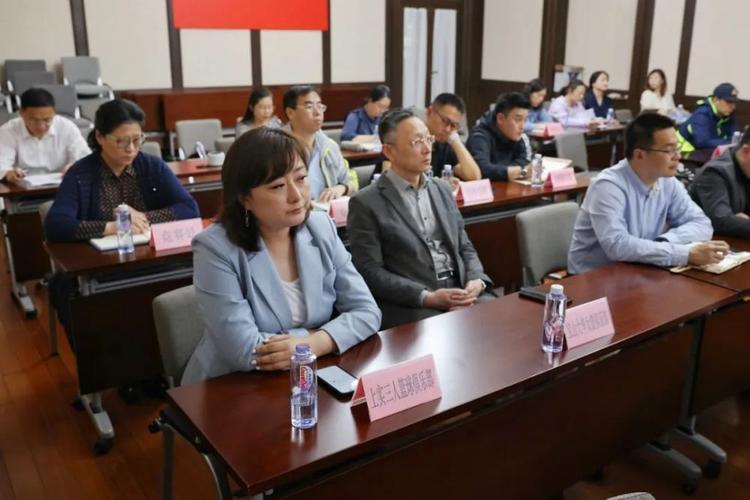Title: Overview and Guidance on the Leadership Team of the Shanghai Sports Bureau
Introduction
The leadership team of the Shanghai Sports Bureau plays a pivotal role in shaping the sports landscape of one of China's most dynamic cities. Comprising seasoned professionals and administrators, this team's decisions and strategies significantly impact the development of sports within Shanghai. In this analysis, we delve into the structure, responsibilities, and potential areas of focus for the leadership team of the Shanghai Sports Bureau.
Structure of the Leadership Team
The leadership team of the Shanghai Sports Bureau typically includes top officials and executives responsible for overseeing various aspects of sports management and development within the city. At the helm is the Director, who serves as the head of the bureau and provides strategic direction. Supporting the Director are Deputy Directors, each entrusted with specific portfolios such as sports promotion, facility management, athlete development, and international cooperation. Additionally, there may be heads of departments or divisions focusing on grassroots sports, elite training programs, event management, and public relations.

Key Responsibilities
1.
Policy Formulation and Implementation:
The leadership team is responsible for formulating policies and regulations that govern sports activities within Shanghai. These policies may cover areas such as sports funding, facility construction, athlete support programs, and sports promotion initiatives. Effective implementation of these policies ensures smooth functioning and development of the sports sector.
2.
Resource Allocation:
Allocating resources efficiently is crucial for the sustainable development of sports. The leadership team determines budget allocations for various programs, projects, and initiatives based on strategic priorities and needs assessments. They also seek funding from government sources, sponsors, and other stakeholders to support sports development endeavors.
3.
Facility Management and Infrastructure Development:
Ensuring access to highquality sports facilities is essential for nurturing sporting talent and promoting active lifestyles. The leadership team oversees the management, maintenance, and expansion of sports infrastructure such as stadiums, arenas, training centers, and recreational facilities.
4.
Athlete Development:
Identifying and nurturing talented athletes is a core responsibility of the leadership team. They design and implement training programs, provide coaching and support services, and create pathways for athletes to excel at the regional, national, and international levels.
5.
Promotion of Sports Culture:
Promoting sports participation and fostering a sportsloving culture among residents is a key objective. The leadership team initiates and supports campaigns, events, and initiatives aimed at encouraging people of all ages and backgrounds to engage in sports and physical activities.
6.
International Collaboration:
Collaboration with international sports organizations, governing bodies, and other cities is vital for sharing knowledge, expertise, and resources. The leadership team establishes partnerships and engages in exchanges to enhance Shanghai's global standing in the field of sports.
Guidance and Recommendations
1.
Strategic Planning:
The leadership team should engage in comprehensive strategic planning to outline longterm goals and priorities for sports development in Shanghai. This plan should align with broader city development strategies and take into account emerging trends and opportunities in the sports industry.
2.
Stakeholder Engagement:
Building strong partnerships with government agencies, sports associations, educational institutions, businesses, and community organizations is essential for the success of sports initiatives. The leadership team should actively engage with stakeholders to garner support, gather feedback, and foster collaboration.
3.
Investment in Grassroots Sports:
Investing in grassroots sports programs and facilities is crucial for identifying and nurturing young talent. The leadership team should prioritize initiatives that promote sports participation among children and youth, particularly in schools and communities with limited access to sporting resources.
4.
Embrace Innovation and Technology:
Leveraging innovation and technology can enhance the efficiency, accessibility, and appeal of sports activities. The leadership team should explore opportunities to incorporate technologies such as virtual training platforms, data analytics, and esports into their programs and services.
5.
Sustainability and Environmental Responsibility:
In the development of sports infrastructure and events, the leadership team should prioritize sustainability and environmental responsibility. This includes minimizing carbon footprint, reducing waste generation, and promoting ecofriendly practices throughout the sports ecosystem.
Conclusion
The leadership team of the Shanghai Sports Bureau holds a significant responsibility in steering the development of sports within the city. By formulating strategic policies, allocating resources wisely, nurturing talent, promoting sports culture, and fostering international collaboration, they can contribute to the advancement of Shanghai as a vibrant sports hub. Embracing innovation, engaging stakeholders, and prioritizing sustainability are key principles that should guide their efforts in achieving longterm success.
